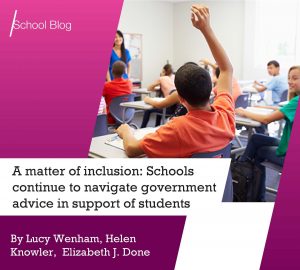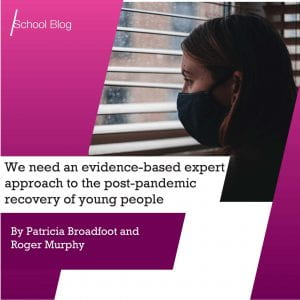 By Dr Lorna Smith, School of Education, University of Bristol
By Dr Lorna Smith, School of Education, University of Bristol
The Victorian writer, philosopher and critic, John Ruskin, once invited his readers to ‘Commiserate [with] the hapless Board School child, shut out from dreamland and poetry, and prematurely hardened by the pressure of codes and formularies. He spends his years as a tale that is not told’ (Lawson & Silver, 1973, p. 330). But what tale could be told of today’s hapless secondary state-school student of English in England, who might be similarly shut out from dreamland and poetry and prematurely hardened and diminished by the pressure of narrow assessment objectives?

 National Inclusion Week 2021. Blog post by
National Inclusion Week 2021. Blog post by 

